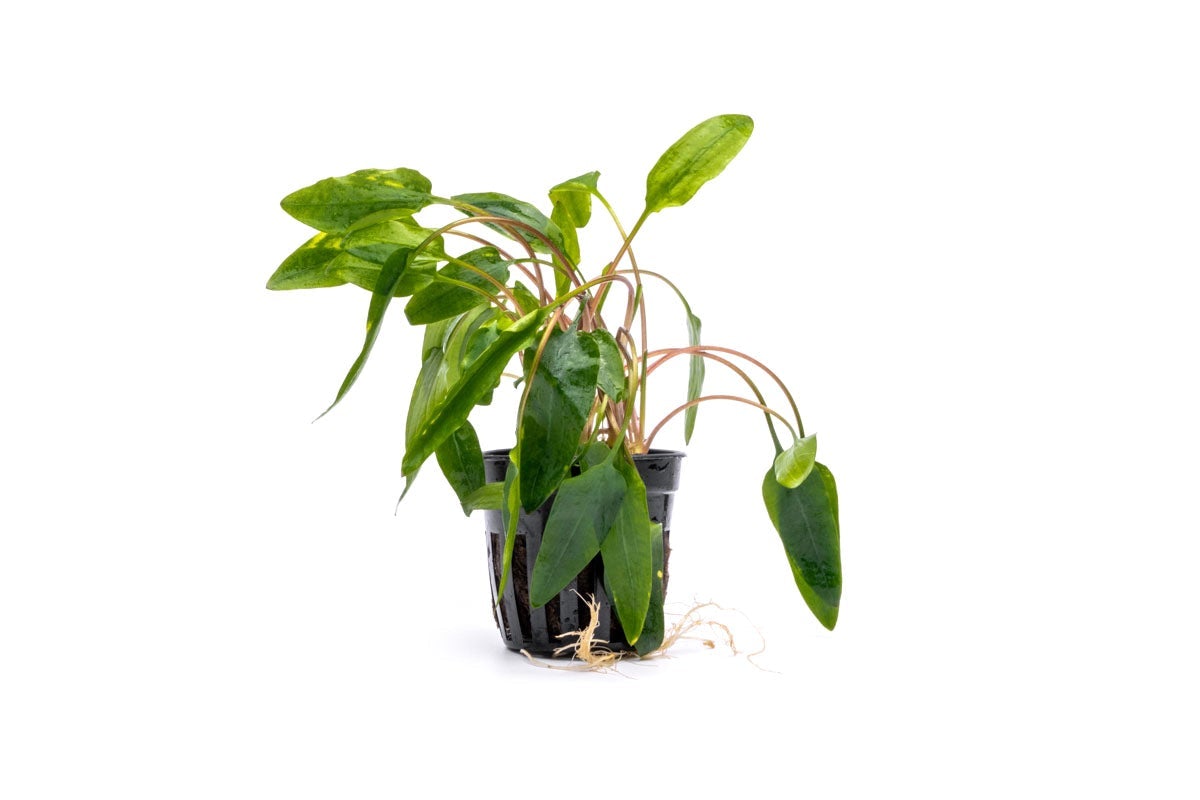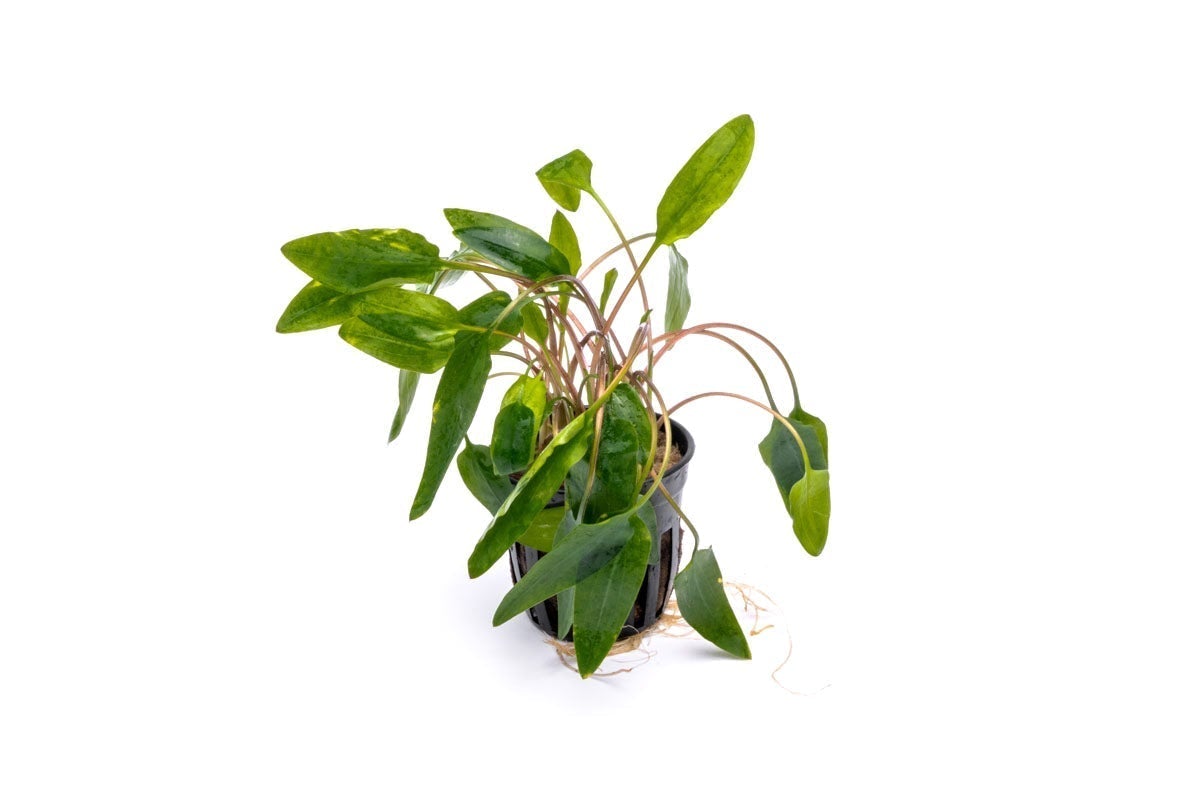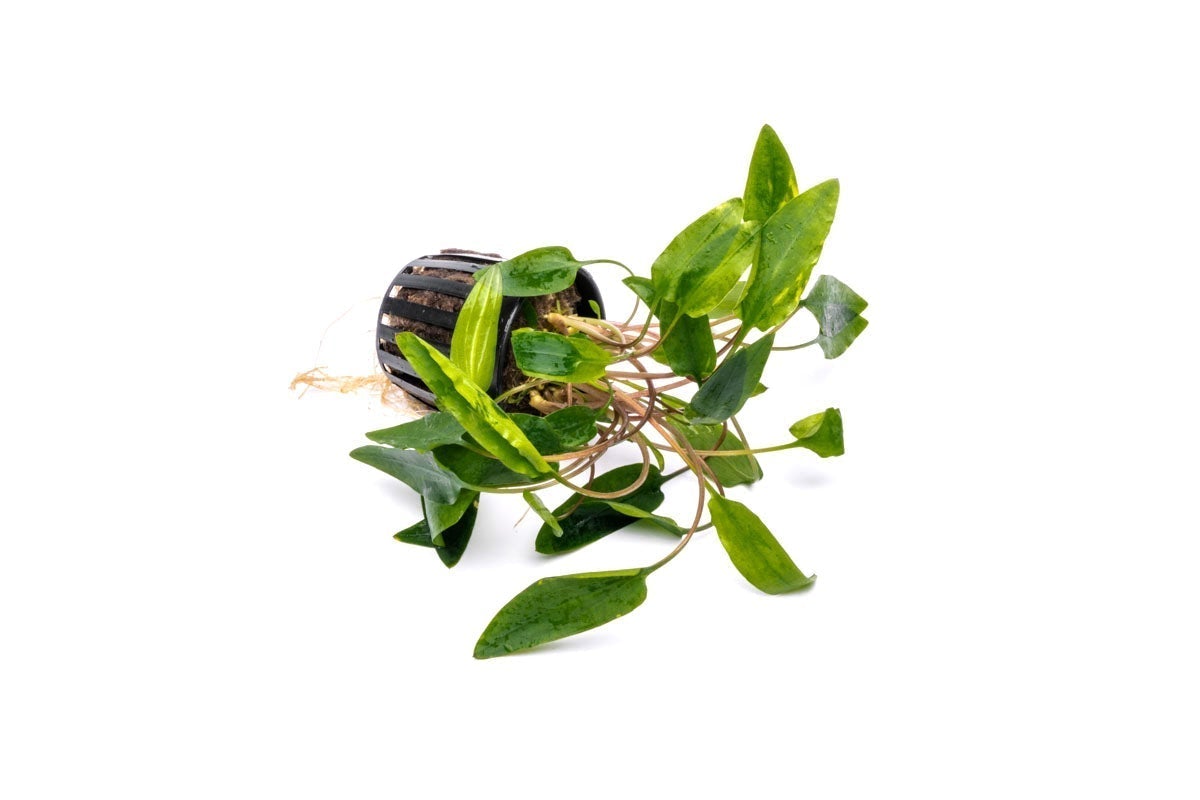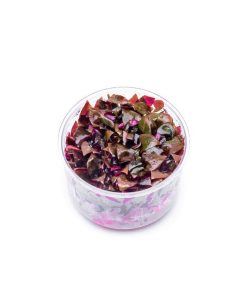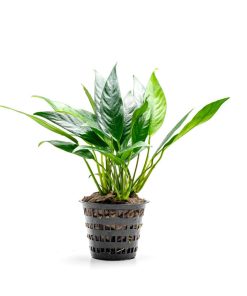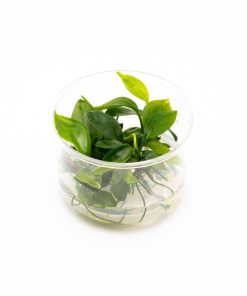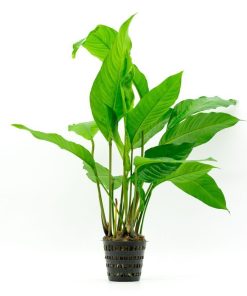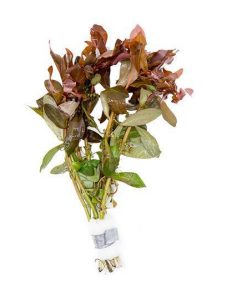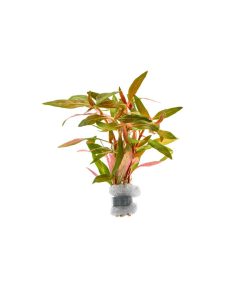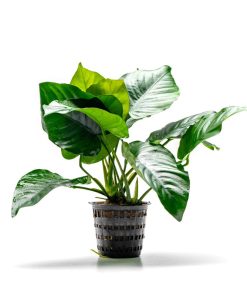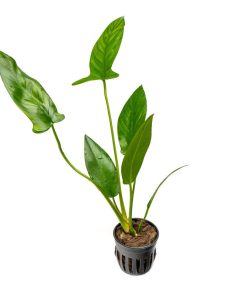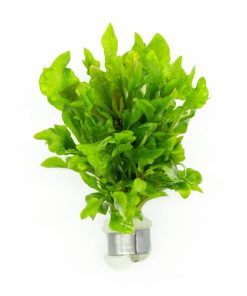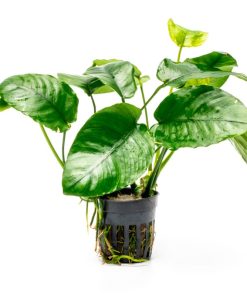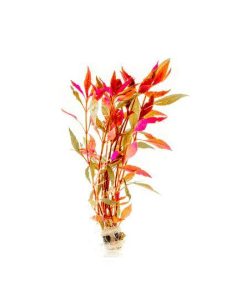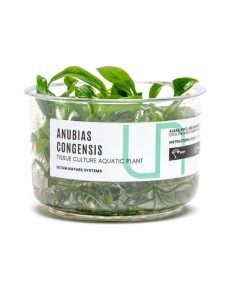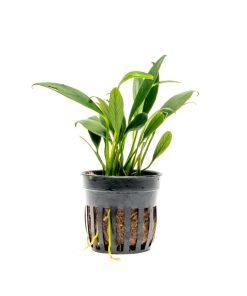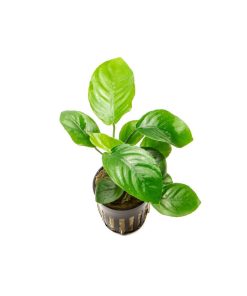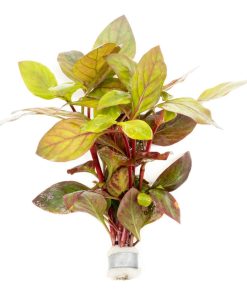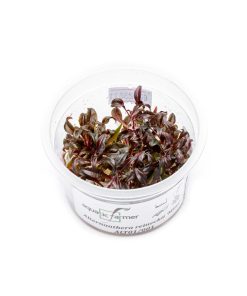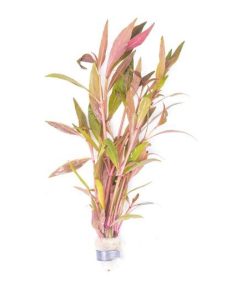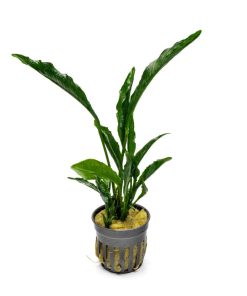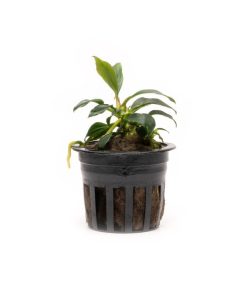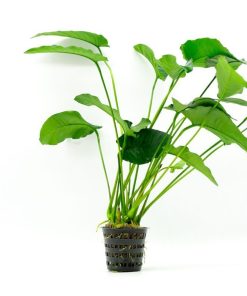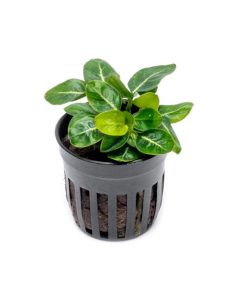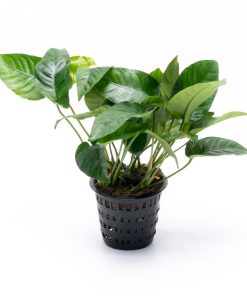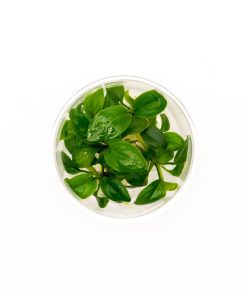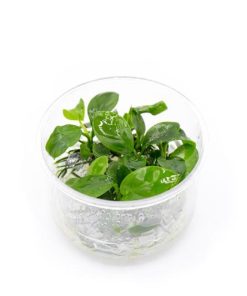Cryptocoryne Affinis Red CPA
$ 9,99 $ 5,99
Common Name: Crypt Affinis Red
Crypt Affinis is an uncommon type of crypt that used to be extremely popular within the hobby. Cryptocoryne Affinis Red features similar leave to the normal Affinis but has a brownish-red border on its leaves when grown submerged, offering an interesting appearance in a planted tank. Overall growth will be dependent on the environment it is placed in. Naturally, Crypt Affinis Red can be found growing in the wild of West Malaysia in sandy areas or along river banks. This cryptocoryne is similar in looks to Wendtii and Becketii and requires similar care when keeping it in a planted aquarium. We’d recommend that it is not moved like most crypts as this can potentially trigger Crypt melt.
Like other crypts, Cryptocoryne Affinis Red is great for beginner hobbyists due to its ease in keeping and low care requirements. If grown in good aquarium substrate such as Ultum Nature System Controsoil, the plant can feed through the roots and grow quickly without the need for high light, CO2 or fertilizer dosing. However, the addition of CO2 and good lighting will result in healthier, more robust growth. Crypts can be grown emersed or submerged. Propagate by splitting the rhizome or cutting off new growth and replanting.
Cryptocoryne Affinis Red Specifications
Please note, all stats are provided as general guidelines. Factors such as height, size and overall success can vary depending on care and environment.
- Family name: Araceae
- Origin: Borneo
- Height: 5-10″
- Care: Easy
- Lighting: Low to medium
- CO2: Not required, but recommended
- Propagation: Separate at rhizome
- Growth rate: Slow
Notes:
- Cryptocoryne prefer not to be moved once planted. If possible, do not move them!
- Do not make drastic changes to the aquarium. Unstable parameters will result in melt and rotting of the aquarium plant.
- Please research appropriately to ensure your plant thrives.
- Please be sure to remove this plant from its pot. Remove the cotton surrounding the roots and plant into a quality substrate.
- CO2 injection and quality aquarium soil will yield better growth.
Fast Shipping with Professional Packaging
Our long-standing relationship with UPS FedEx DHL and other carriers around the world allows us to offer various shipping options. Our warehouse staff are highly trained to package your goods exactly as per the specifications we provide. Your goods are thoroughly checked and secured properly prior to shipping. We ship to hundreds of thousands of customers daily in different countries. The fact that we're dedicated to becoming the largest online retailer in the World is obvious. Warehouses and distribution centers are located in Europe as well as the USA.
Please note that orders with more than one item are subject to a processing period that is based to the specific item.
Before shipping, all ordered products will be thoroughly inspected. Most orders are shipped within 48 hours. The time to deliver varies from 3-7 days.
Returns
The stock is dynamic and we do not completely manage it because multiple stakeholders are involved, including our warehouse and factory. The stock can change at any moment. Be aware that your order will be unable to fill once you've placed your order.
Our policy runs for 30 days. If you don't receive your product within the 30 days period, we are not able to provide a refund or an exchange.
The item must not be used, and it must be in its original condition. The item must be in its original packaging.
Related products
Aquatic Plant
Aquatic Plant
Aquatic Plant
Aquatic Plant
Aquatic Plant
Aquatic Plant
Aquatic Plant
Aquatic Plant
Aquatic Plant
Aquatic Plant
Aquatic Plant
Aquatic Plant
Aquatic Plant
Aquatic Plant
Aquatic Plant
Aquatic Plant
Aquatic Plant
Aquatic Plant
Aquatic Plant
Aquatic Plant
Aquatic Plant
Aquatic Plant
Uncategorized
Aquatic Plant
Aquatic Plant
Aquatic Plant
Aquatic Plant
Aquatic Plant
Aquatic Plant
